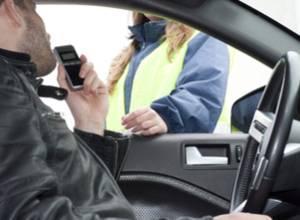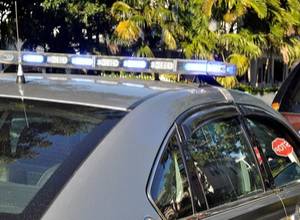Recent Blog Posts
Texas Woman Falsely Accuses Officer of Sexual Assault During DWI Arrest
 Police officers have a responsibility to behave professionally and respect the rights of a person they suspect of committing a crime, such as driving while intoxicated. Police misconduct during an arrest can force prosecutors to dismiss criminal charges or a court to find in favor of the defendant. Dashboard and body cameras are meant to keep police officers accountable by recording visual and audio evidence of what happened during the arrest. However, those investigating alleged police misconduct can also use video evidence to disprove a false claim. For instance, video footage seems to debunk a Texas woman’s allegation that a police officer sexually assaulted her during her DWI arrest.
Police officers have a responsibility to behave professionally and respect the rights of a person they suspect of committing a crime, such as driving while intoxicated. Police misconduct during an arrest can force prosecutors to dismiss criminal charges or a court to find in favor of the defendant. Dashboard and body cameras are meant to keep police officers accountable by recording visual and audio evidence of what happened during the arrest. However, those investigating alleged police misconduct can also use video evidence to disprove a false claim. For instance, video footage seems to debunk a Texas woman’s allegation that a police officer sexually assaulted her during her DWI arrest.
Allegations
A police officer stopped a 37-year-old Texas woman in May for a traffic violation, which led to her arrest on suspicion of DWI. The woman’s family reportedly contacted a civil rights attorney because the woman claimed that the arresting officer sexually assaulted her and threatened violence. The accusations included that:
Medical Condition Can Affect DWI Breath Test Results
 A 64-year-old woman in Canada was recently arrested for refusing to submit to a breath test after a police officer stopped her for suspicion of driving while intoxicated. Police suspended the woman’s driver’s license for 90 days and impounded her vehicle. However, the woman claims that she did not refuse the test but was unable to complete it due to a chronic lung disease. The woman has a condition called chronic obstructive pulmonary disease, which restricts her breathing ability. When the woman could not sustain her breath long enough to give a sample, the officer assumed that she was purposefully not complying. Drivers suspected of DWI should inform officers of health conditions that may affect the outcome of a sobriety test.
A 64-year-old woman in Canada was recently arrested for refusing to submit to a breath test after a police officer stopped her for suspicion of driving while intoxicated. Police suspended the woman’s driver’s license for 90 days and impounded her vehicle. However, the woman claims that she did not refuse the test but was unable to complete it due to a chronic lung disease. The woman has a condition called chronic obstructive pulmonary disease, which restricts her breathing ability. When the woman could not sustain her breath long enough to give a sample, the officer assumed that she was purposefully not complying. Drivers suspected of DWI should inform officers of health conditions that may affect the outcome of a sobriety test.
Breath Test Accuracy
Breath and blood tests are the most common ways for police officers to determine whether a DWI suspect has a blood alcohol concentration greater than the legal limit. Officers commonly use breath tests first because they are cheaper and easier to administer. However, they are also less accurate than blood tests because:
Older Drivers More Susceptible to Effects of Alcohol
 Senior citizens are generally at greater risk of traffic accidents and violations than an average adult driver. Their driving skills can diminish with age because their physical reactions are slower and their vision and hearing are weaker. Seniors who choose to drink and drive will also see an increased danger of being stopped by police and arrested for driving while intoxicated. Though it is a difficult adjustment, seniors must understand that alcohol will have a more pronounced effect on their driving skills than when they were younger.
Senior citizens are generally at greater risk of traffic accidents and violations than an average adult driver. Their driving skills can diminish with age because their physical reactions are slower and their vision and hearing are weaker. Seniors who choose to drink and drive will also see an increased danger of being stopped by police and arrested for driving while intoxicated. Though it is a difficult adjustment, seniors must understand that alcohol will have a more pronounced effect on their driving skills than when they were younger.
Processing Alcohol
Social drinkers often anticipate their level of driving impairment by the number and types of alcoholic drinks they consume. They learn what their own limits are, though it is not an exact science. However, senior citizens should not expect the drinking habits they formed at a younger age to affect their driving skills in the same way:
Police Targeting Drunk Drivers Near Bars Does Not Equal Entrapment
 Police officers know the times when and places where people are most likely to commit a driving while intoxicated offense. Thus, police cars are often parked near bars and entertainment venues late at night, looking for drivers who show signs of impairment. This may seem unfair if you are one of the unfortunate people pulled over. Some defendants wonder whether this form of targeting qualifies as entrapment. However, it is rare to be able to prove that a police officer is guilty of entrapment in a DWI case. Claiming that the officer did not have reasonable suspicion to pull you over is a more successful defensive strategy.
Police officers know the times when and places where people are most likely to commit a driving while intoxicated offense. Thus, police cars are often parked near bars and entertainment venues late at night, looking for drivers who show signs of impairment. This may seem unfair if you are one of the unfortunate people pulled over. Some defendants wonder whether this form of targeting qualifies as entrapment. However, it is rare to be able to prove that a police officer is guilty of entrapment in a DWI case. Claiming that the officer did not have reasonable suspicion to pull you over is a more successful defensive strategy.
Entrapment
The legal definition of entrapment is when a police officer induces a defendant to commit a criminal offense which the defendant would not have otherwise committed. An officer watching for drunk drivers near a place where people have been drinking does not qualify as entrapment because the officer is not inducing the driver to:
Field Sobriety Test Not Enough to Prove Intoxication
 Field sobriety tests are one of the initial tools police officers will use to determine whether someone is driving while intoxicated. Officers administering the tests are looking for signs of delayed reactions, poor coordination and an inability to follow directions, which may show that the driver is impaired. Officers and prosecutors have come to assume that certain standard tests are reliable in predicting intoxication. However, the tests do not definitively prove intoxication. Defendants can contest their DWI charges if the evidence relies too much on the field sobriety test results.
Field sobriety tests are one of the initial tools police officers will use to determine whether someone is driving while intoxicated. Officers administering the tests are looking for signs of delayed reactions, poor coordination and an inability to follow directions, which may show that the driver is impaired. Officers and prosecutors have come to assume that certain standard tests are reliable in predicting intoxication. However, the tests do not definitively prove intoxication. Defendants can contest their DWI charges if the evidence relies too much on the field sobriety test results.
Test Origins
The National Highway Traffic Safety Administration adopted the standard field sobriety tests based on a California study conducted during the late 1970s. Police officers were asked to judge whether subjects were intoxicated by using various field sobriety tests. Researchers identified three tests as having the highest accuracy rates:
Texas Man Claims DWI Laws Discriminate Against Alcoholics
 A Texas man recently garnered attention when he contested his driving while intoxicated conviction by arguing that a Texas DWI law is unconstitutional. Specifically, he claimed that the 0.08 blood alcohol concentration limit discriminates against alcoholics. Neither the trial court nor the appellate court found the argument convincing, upholding the man’s conviction. There are reasons to question whether the BAC limit is an accurate measure of a driver's impairment. However, the defendant’s argument had little chance of succeeding because he was asking for special treatment, not equality.
A Texas man recently garnered attention when he contested his driving while intoxicated conviction by arguing that a Texas DWI law is unconstitutional. Specifically, he claimed that the 0.08 blood alcohol concentration limit discriminates against alcoholics. Neither the trial court nor the appellate court found the argument convincing, upholding the man’s conviction. There are reasons to question whether the BAC limit is an accurate measure of a driver's impairment. However, the defendant’s argument had little chance of succeeding because he was asking for special treatment, not equality.
Case Details
The defendant was facing his fourth DWI conviction when he attempted to quash the charges by challenging the constitutionality of Texas’ DWI law. A first or second DWI conviction is a misdemeanor unless there are aggravating factors. A third DWI conviction is a third-degree felony, which may result in:
Golf Carts Fall Under DWI Law
Using Golf Carts
DWI laws apply to golf carts because Texas law classifies them as motor vehicles. Their use is regulated in different ways than a normal motor vehicle:
- Golf carts do not need a license plate or proof of insurance;
- A golf cart driver needs a driver’s license only when driving it on a public street;
- Golf carts may be driven on public streets only within a gated community or on roads near a golf course; and
Lowering BAC Limit Would Increase Criminalization of Drivers
 A recent report released by the National Academies of Sciences, Engineering, and Medicine recommends that all states lower the blood alcohol concentration limit to 0.05 for charges of driving while intoxicated or driving under the influence of alcohol. The report states that:
A recent report released by the National Academies of Sciences, Engineering, and Medicine recommends that all states lower the blood alcohol concentration limit to 0.05 for charges of driving while intoxicated or driving under the influence of alcohol. The report states that:
- Deterioration in driving skills starts before people reach the 0.08 BAC limit; and
- Countries that use a 0.05 BAC limit have seen a decrease in vehicle accidents.
To be clear, there are no signs that Texas is considering lowering the legal limit. However, Utah became the first state to adopt a 0.05 BAC limit with a law it passed last year. The change is scheduled to go into effect on Dec. 30. Depending on the results, other states may pass similar laws. If the federal government supports the new BAC limit, it may offer incentives to states that comply. The goal of lowering the BAC limit is to increase driver safety. There are a couple of reasons why it may instead increase the criminalization of drivers:
DWI Evidence Suppressed Because of Unwarranted Stop
 Texas police must have reason to believe someone may be driving while intoxicated or breaking the law before performing a DWI traffic stop. Minor traffic violations or erratic driving are often enough justification to pull over a driver, after which a police officer may observe signs that the driver is intoxicated. However, police officers can have an overly broad interpretation of what qualifies as suspicious driving activity. A Texas man charged with misdemeanor DWI was able to suppress the evidence from his DWI stop because the officer could not prove that there was reasonable suspicion that the driver was committing a crime.
Texas police must have reason to believe someone may be driving while intoxicated or breaking the law before performing a DWI traffic stop. Minor traffic violations or erratic driving are often enough justification to pull over a driver, after which a police officer may observe signs that the driver is intoxicated. However, police officers can have an overly broad interpretation of what qualifies as suspicious driving activity. A Texas man charged with misdemeanor DWI was able to suppress the evidence from his DWI stop because the officer could not prove that there was reasonable suspicion that the driver was committing a crime.
Case Details
In Texas v. Bernard, an officer performed an early morning traffic stop of the defendant, claiming that she had observed him swerving into multiple lanes and wanted to check on his well being. There was video footage from the police vehicle of the entire incident, from the point that the officer started observing the driver through the traffic stop. The video and the officer’s own testimony suggested that the driver did not commit any violations or behave in a dangerous manner:
Safe Driving Tips After Your First DWI
 When you have regained your driving privileges after a charge of driving while intoxicated, you must reassess your driving habits that led to the initial arrest. Most DWI arrests occur because drivers commit traffic violations or are involved in accidents. Once a police officer suspects you may be impaired, you are at risk of being charged with DWI. Avoiding drinking and driving is the most important step you can take to prevent a DWI arrest. However, there are other driving tips that will keep you safe and help you avoid police attention.
When you have regained your driving privileges after a charge of driving while intoxicated, you must reassess your driving habits that led to the initial arrest. Most DWI arrests occur because drivers commit traffic violations or are involved in accidents. Once a police officer suspects you may be impaired, you are at risk of being charged with DWI. Avoiding drinking and driving is the most important step you can take to prevent a DWI arrest. However, there are other driving tips that will keep you safe and help you avoid police attention.
Being Aware of Impairment
There are conditions other than intoxication that can impair your driving skills. You may be sick, emotionally upset or experiencing an adverse side effect from a medication. However, the most common driving impairment is drowsiness. Whether due to lack of sleep or overworking yourself, being tired slows down the mental responsiveness you need to be a safe driver. Police can also confuse the symptoms of drowsiness with the symptoms of intoxication. To avoid impaired driving, you should:





